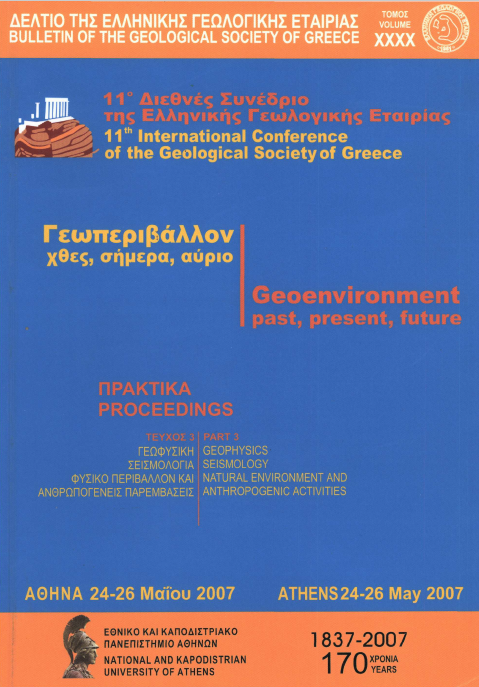Mineralogical and geochemical study of the Kirki mining wastes, Evros region, Greece -determination of the environmental impact by toxic and heavy metals

Abstract
Mining activity at the Kirki ore deposit has occurred over short periods, from 1974 to 1980 and 1990 to 1997. The mining wastes at the cracked tailing ponds and at other on-site locations of the plant, together with the remains of the mining concentrates, the piles of the unprocessed ore and the large number of destroyed and weathered barrels of chemical reagents, including sodium cyanide, are a great risk to public health. All these wastes are exposed to rain-water and constitute a permanent source of toxic metals and other materials, which are transported by the adjacent small river of Erini, contaminating the hydrologie system of the whole area including the city of Alexandroupolis. For example, the concentrations of toxic metals such as Pb, Cu, Zn, As and Cd in the clay fraction of the river sediments is 2100, 300, 50, 100 and 660 times, respectively, above the natural background concentrations.
Article Details
- How to Cite
-
Arikas, K. (2007). Mineralogical and geochemical study of the Kirki mining wastes, Evros region, Greece -determination of the environmental impact by toxic and heavy metals. Bulletin of the Geological Society of Greece, 40(3), 1343–1353. https://doi.org/10.12681/bgsg.16886
- Section
- Natural Environment and Anthropogenic Activities

This work is licensed under a Creative Commons Attribution-NonCommercial 4.0 International License.
Authors who publish with this journal agree to the following terms:
Authors retain copyright and grant the journal right of first publication with the work simultaneously licensed under a Creative Commons Attribution Non-Commercial License that allows others to share the work with an acknowledgement of the work's authorship and initial publication in this journal.
Authors are able to enter into separate, additional contractual arrangements for the non-exclusive distribution of the journal's published version of the work (e.g. post it to an institutional repository or publish it in a book), with an acknowledgement of its initial publication in this journal. Authors are permitted and encouraged to post their work online (preferably in institutional repositories or on their website) prior to and during the submission process, as it can lead to productive exchanges, as well as earlier and greater citation of published work.


